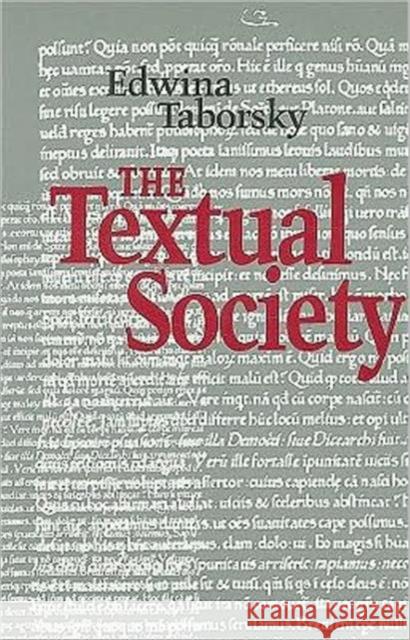The Textual Society » książka
The Textual Society
ISBN-13: 9780802071804 / Angielski / Miękka / 1997 / 229 str.
Semiotics - the study of the encoding of meaning - has so far been confined largely within the humanities, where it has forged a whole new way of understanding meaning and its construction. In this multidisciplinary study, Edwina Taborsky applies semiotic theory to her analysis of the organization of knowledge and therefore the organization of societies.Taborsky looks at knowledge as a social construction involving two forces: stasis and variation expressed within the group and the individual. These levels never merge, but exist in a state of continuous dialogical interaction, which transforms energy and permits meaning to exist. The unique, even tragic nature of individuals is that they are the only means of expression for both realities, for the two opposing forces of energy - stasis and variation. Focusing on the nature of the dialogue between the two realities, Taborsky draws key theoretical themes from the pragmatics and semiotics of Charles S. Peirce, the dialogics of Mikhail Bakhtin, and the fields of biology and quantum physics. As a whole, the book explores cognition as the social transformation of energy, and looks at different types of societies as differently organized forms of energy. In this unique look at the social construction of knowledge, the dialogical framework of two realities - that of the group and that of the individual - provides a powerful analytic tool for the analysis of cognition and social behaviour.











